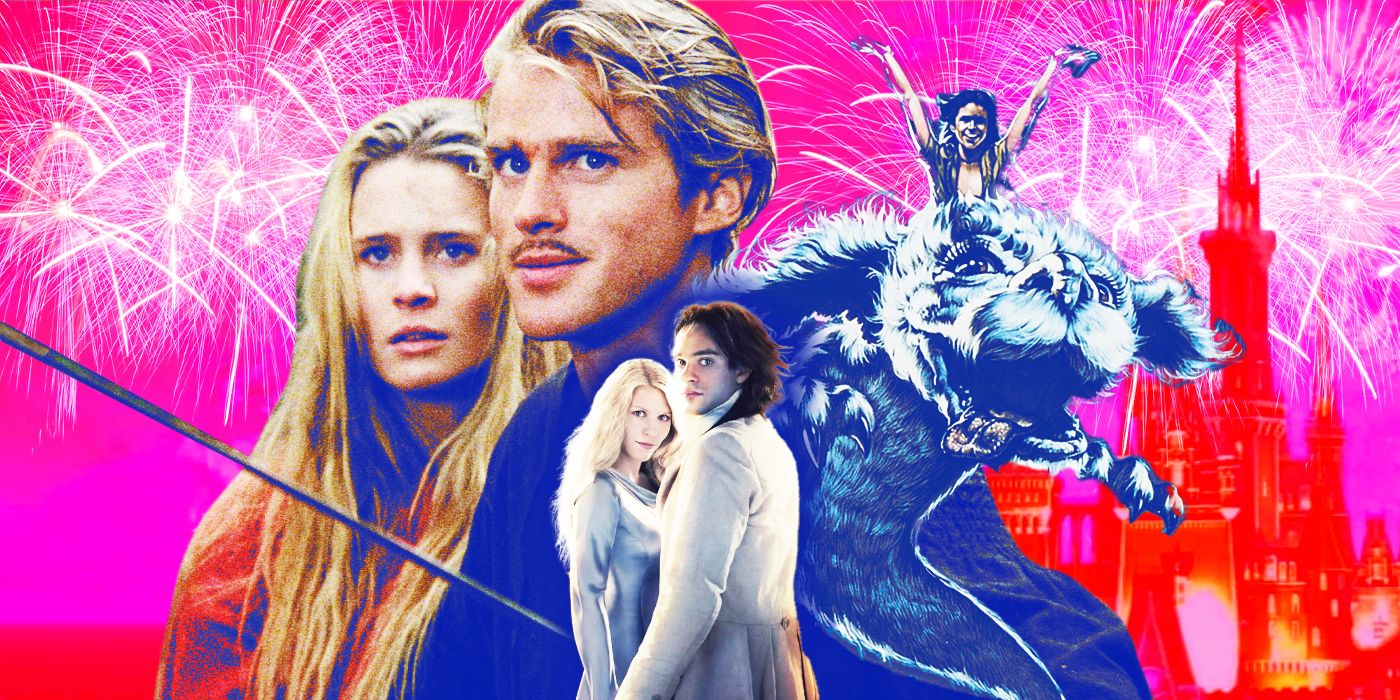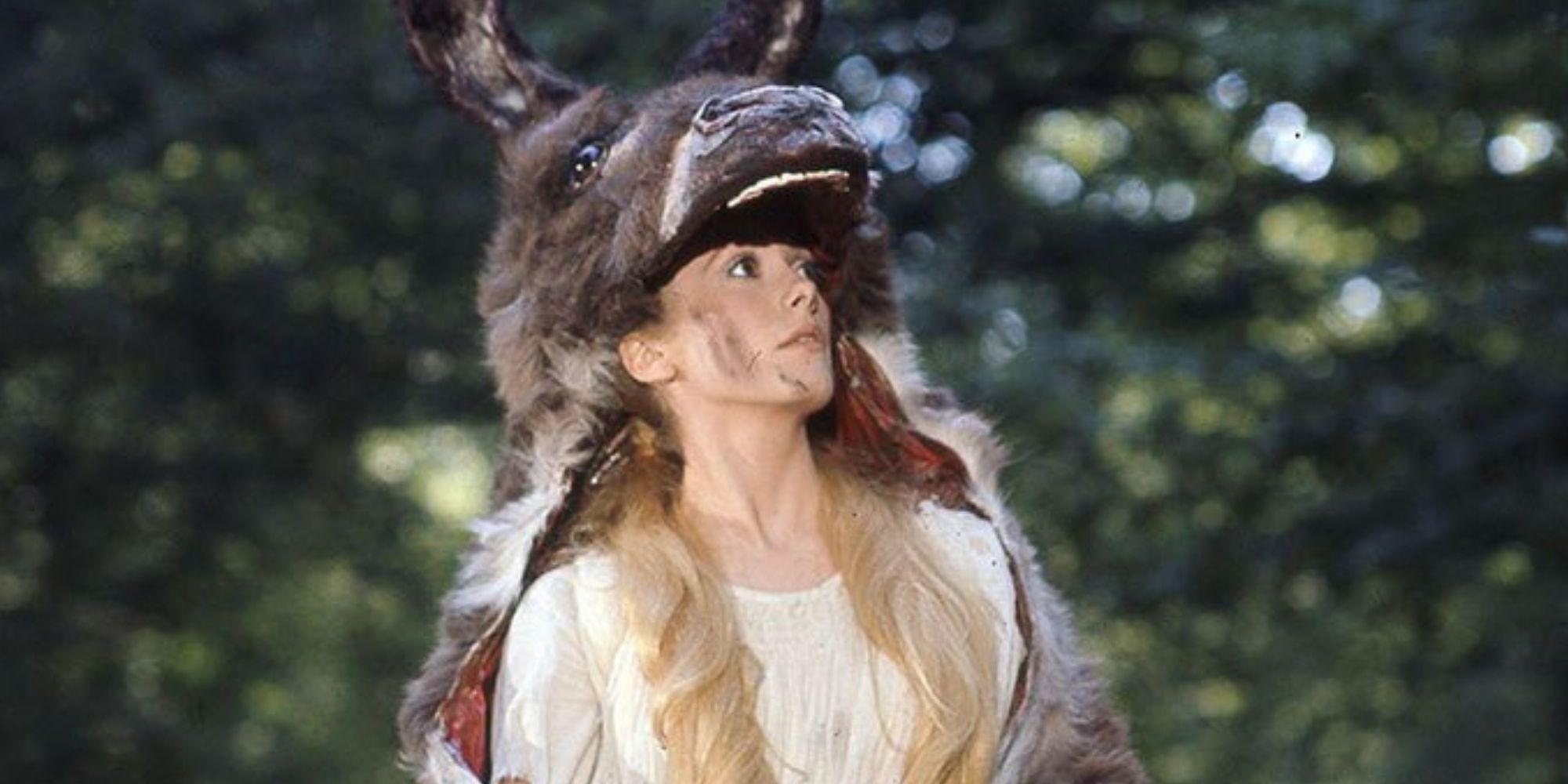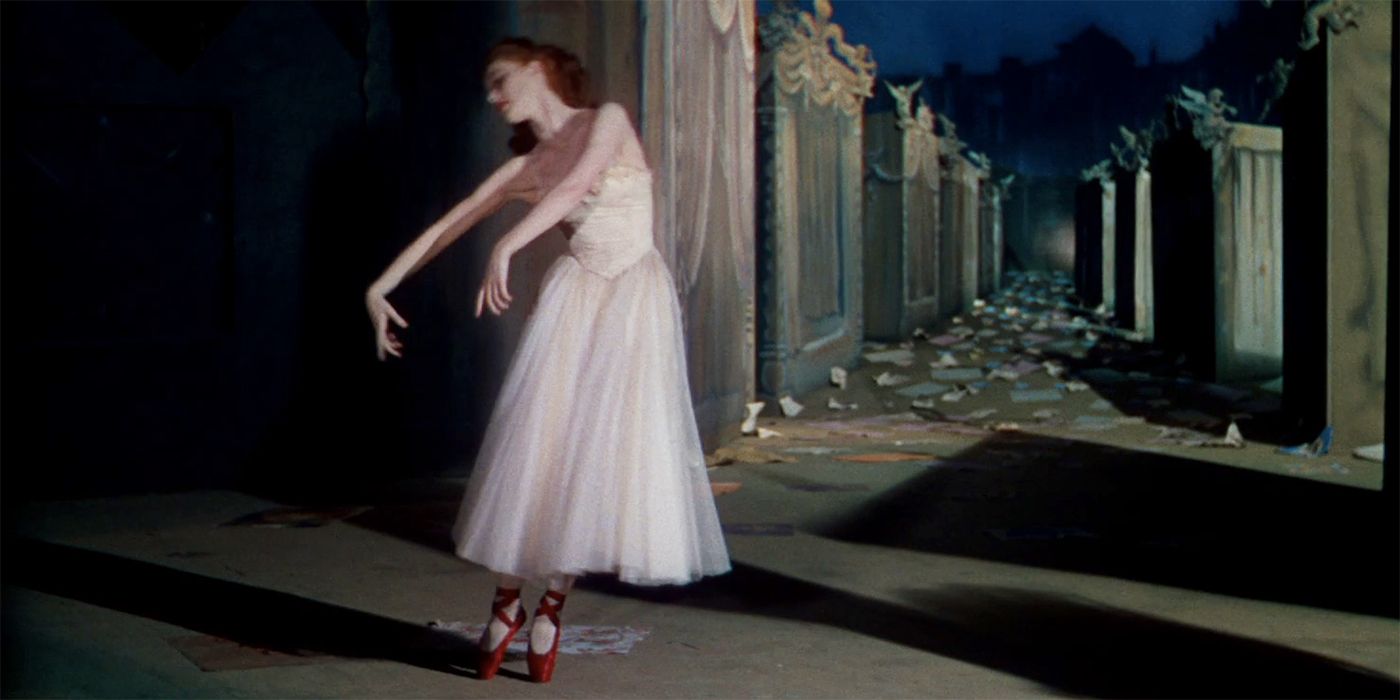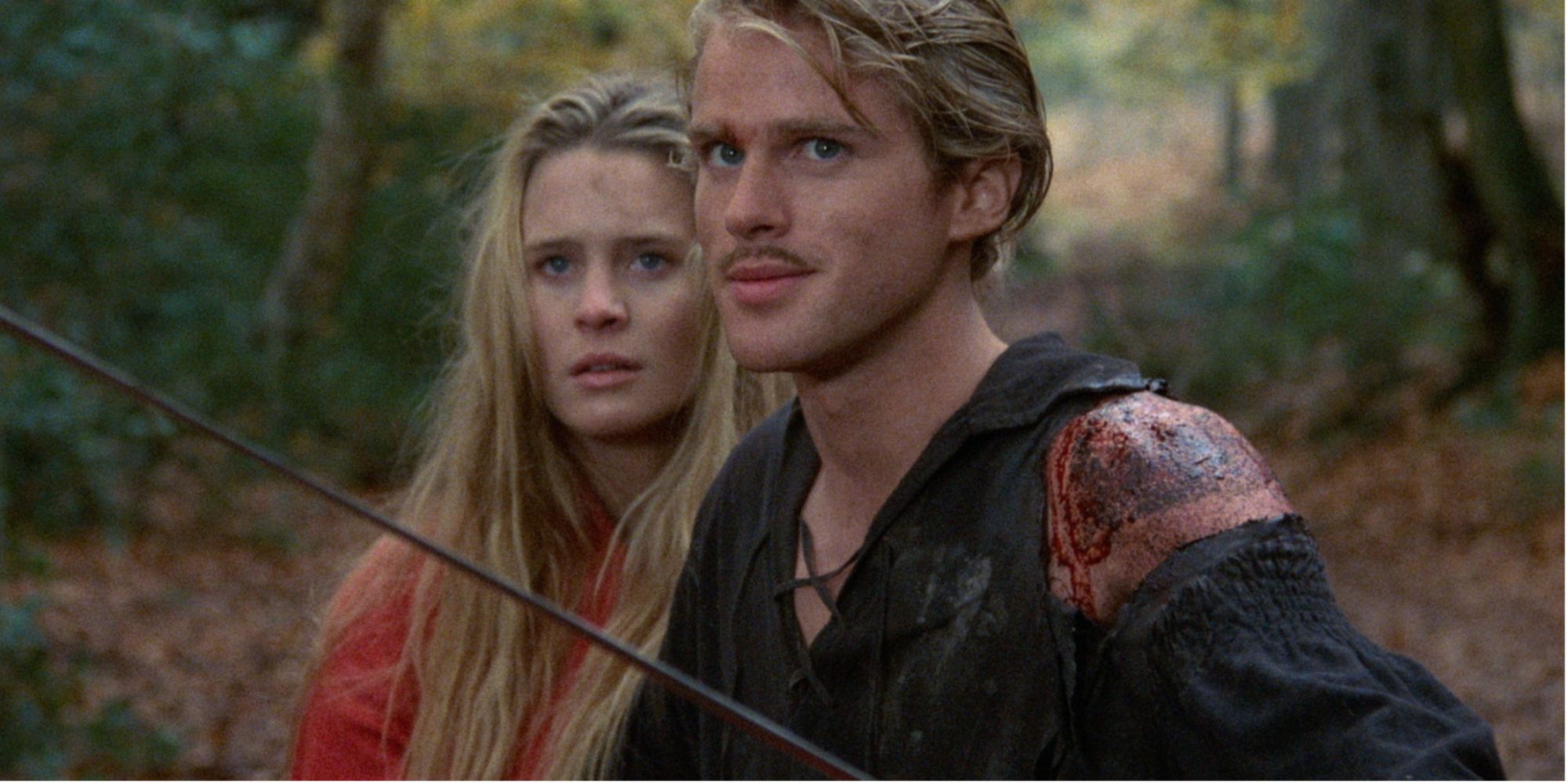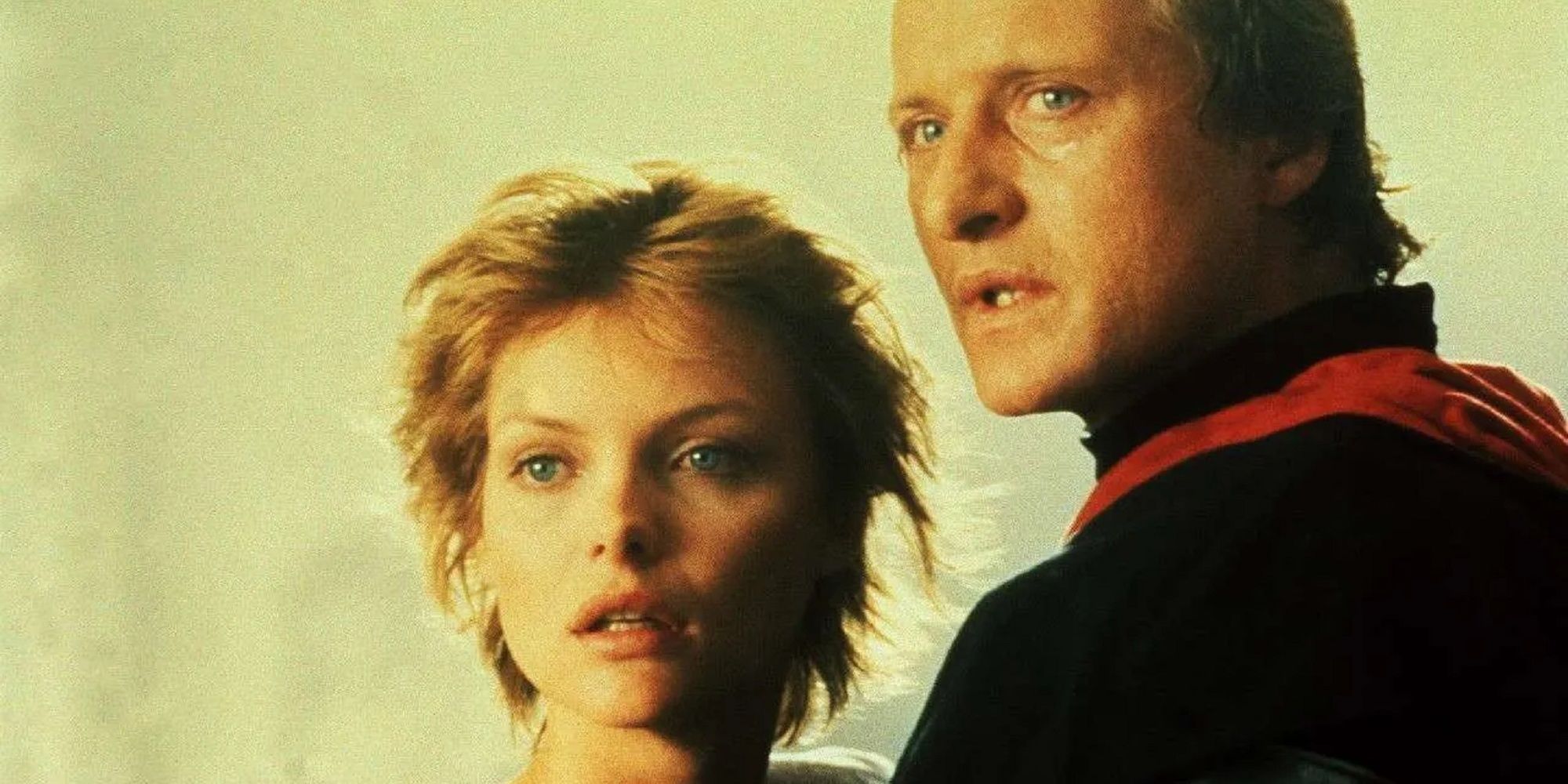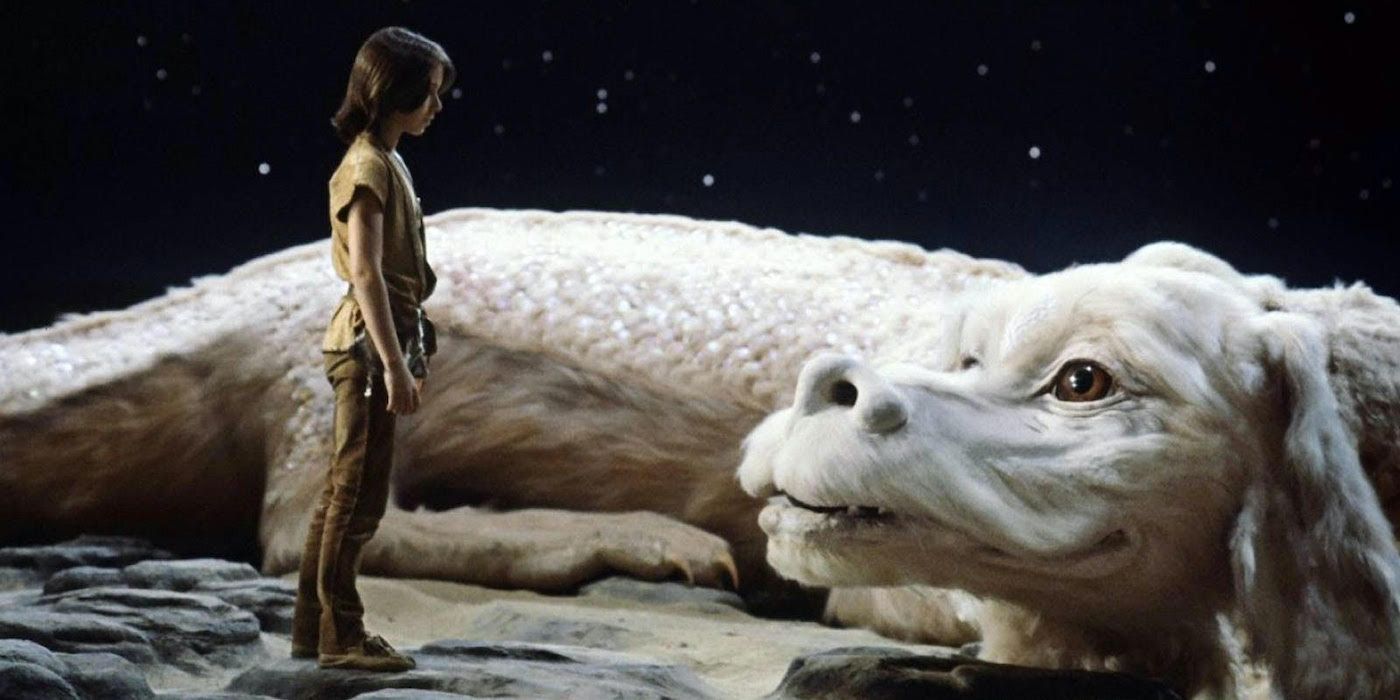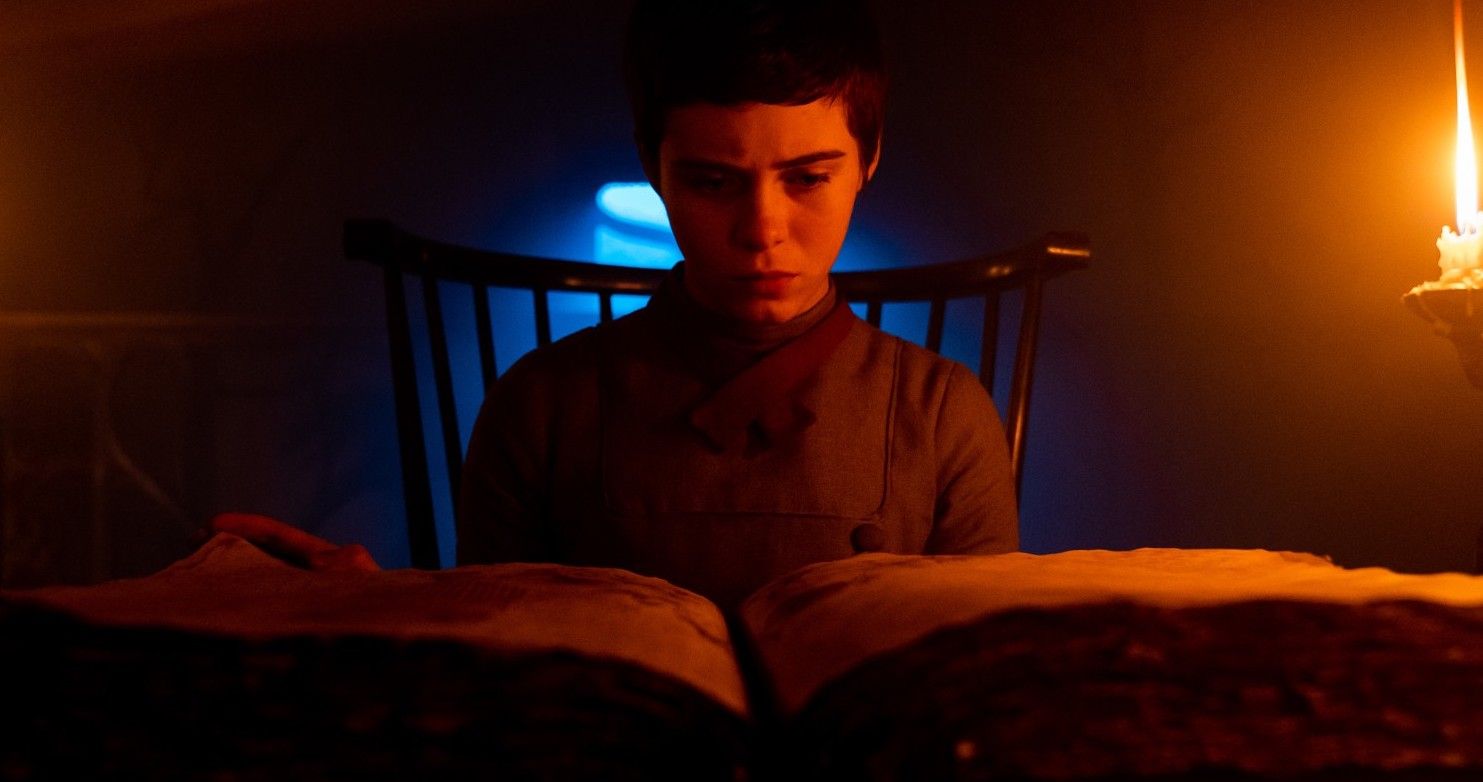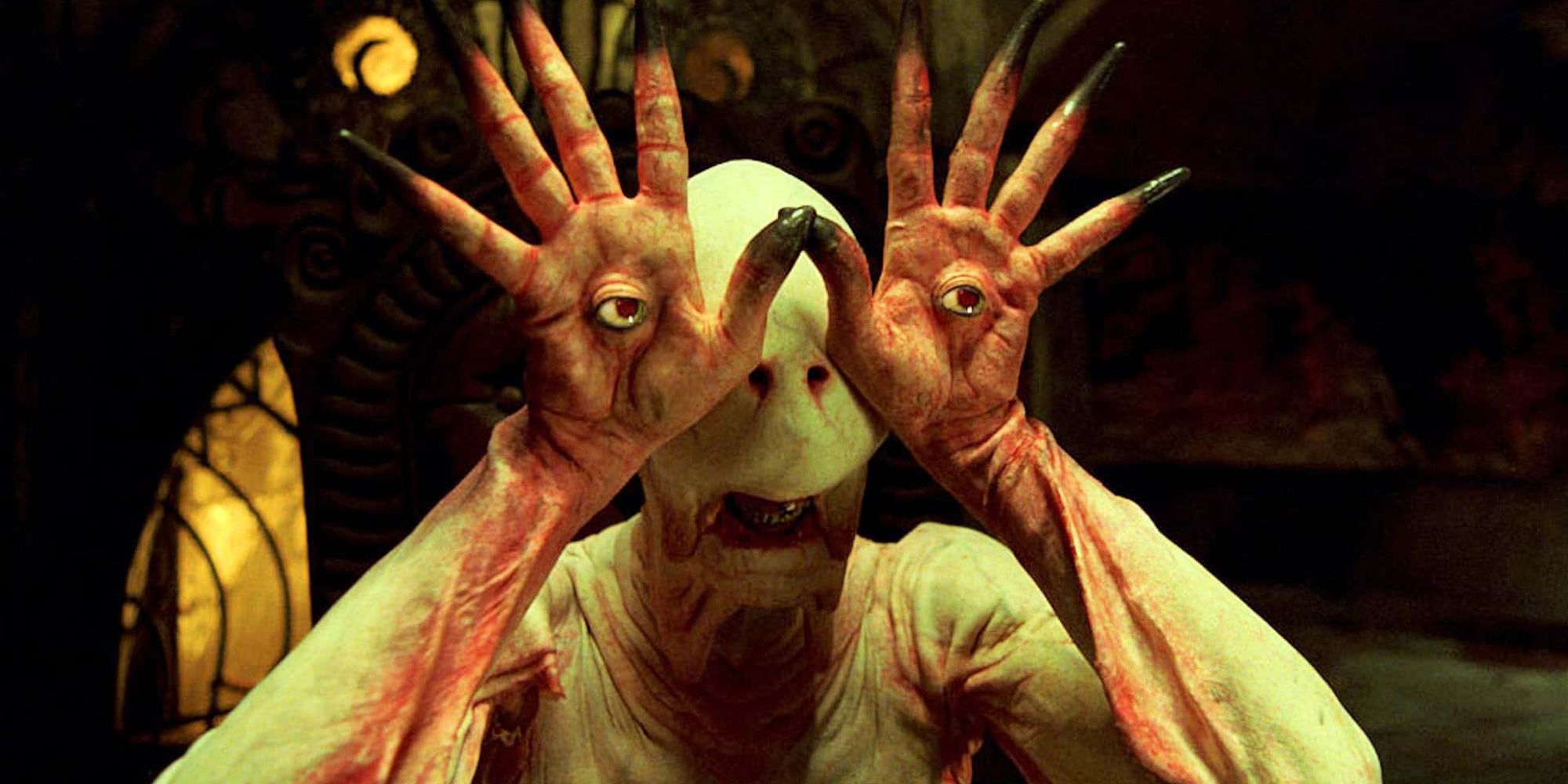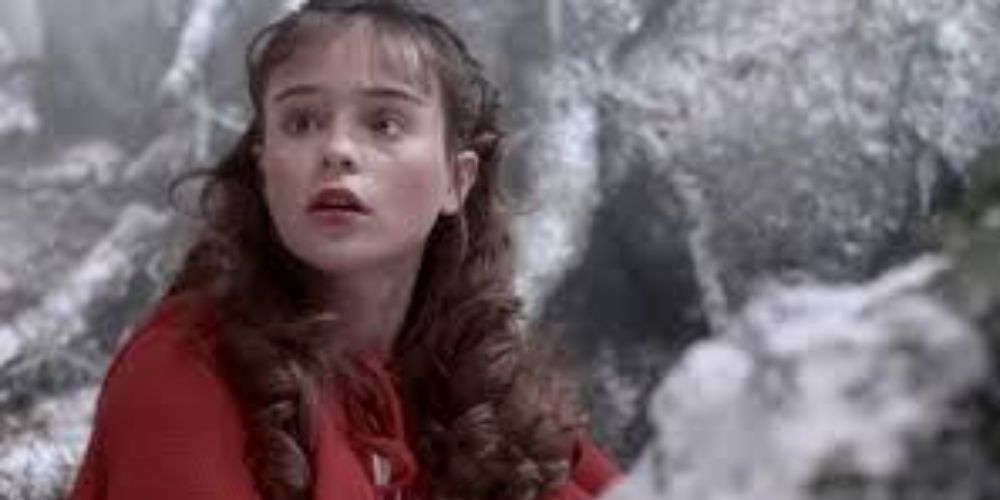Back in 19th century Germany, brothers Wilhelm and Jacob Grimm took it upon themselves to document the various folk tales that were transmitted orally across the land. Fantastical stories such as Cinderella, Rumpelstiltskin, and Snow White were put to paper by the brothers and often sanitized to better suit the sensibilities of the era. With time, the name Grimm became almost synonymous with “fairy tale.” Nowadays, many conflate the expression with Disney. From Grimm tales to the works of Hans Christian Andersen to original stories with fairy tale vibes, such as Frozen, the studio has laid claim to the land of magical children's stories. However, there are still many fairy tales and fairy tale-adjacent stories that have never been touched by the House of Mouse - often for the best. After all, it’s hard to imagine how some of the creepiness and sexual undertones inherent to the stories below would look after being shot through the Disney filter.
Donkey Skin (1970)
Musical movies aren’t for everyone. When it comes to the colorful, over-the-top works of French filmmaker Jacques Demy, the never-ending parade of characters that stop whatever they are doing to erupt into song and dance can be even harder to swallow. But even those that can’t stop themselves from rolling their eyes at the mere mention of titles such as The Young Girls of Rochefort and The Umbrellas of Cherbourg must concede that Donkey Skin is a masterpiece. Demy’s style fits the world of fairy tales like a glove - many refer to his more “realistic” films as modern fairy tales -, and it’s hard to think of a director more adequate to bring this wild Charles Perrault story to the screen.
Catherine Deneuve stars as the princess that becomes known as Donkey Skin after escaping the advances of her incestuous father wearing a coat made from the hide of the king’s beloved animal that poops gold. Granted, it isn’t a very inviting premise, but Demy manages to infuse this universe with such magic, color, and humor that it is virtually impossible not to fall in love with the movie. Even if you don’t know a word of French, Michel Legrand’s songs will remain in your head for years to come, particularly the Lilac Fairy’s (Delphine Seyrig) bizarrely down-to-earth tune about the legal and moral reasons for not marrying your parents.
The Red Shoes (1948)
Nominated for Best Picture at the 1949 Academy Awards, Michael Powell and Emeric Pressburger’s The Red Shoes gives a realistic spin to the classic Hans Christian Andersen story about a young girl whose life is destroyed by a pair of red shoes that force her to dance non-stop. In the movie, ballerina Victoria Page (Moira Shearer) is invited to become a member of the prestigious Lermontov ballet company. She falls in love with her tutor and the company’s composer, Julian (Marius Goring), but is forced to choose between her heart’s desire and her ambition to become the prima ballerina when the company’s manager, Boris Lermontov (Anton Walbrook), develops less than healthy feelings for her. Beautifully shot, The Red Shoes is a must-watch for any ballet lover. The fantastical elements are kept at a minimum, mostly suggested through the movie’s dreamlike visuals, especially in the dance scenes, and, of course, through Victoria’s tragic fate.
The Princess Bride (1987)
Come on, you saw this one coming, didn’t you? What kind of maniac makes a list of fairytale movies and doesn’t include The Princess Bride? This super quotable 80s classic is a true masterclass on the creation of modern fairy tales. It has everything: fencing, fighting, torture, revenge, giants, monsters, chases, escapes, true love, miracles… Directed by Rob Reiner, the movie is based on the novel of the same title by William Goldman, who also penned the film’s screenplay. The main story is framed by a grandfather (Peter Falk) reading one of his childhood favorite books to his bedridden grandson (Fred Savage): Long ago, a beautiful young woman named Buttercup (Robin Wright) falls in love with one of the workers at her family’s farm.
In order to gather enough money to marry his beloved, Westley (Cary Elwes) leaves the countryside in search of wealth, but his ship is taken by the Dread Pirate Roberts, and he is presumed dead. Heartbroken, Buttercup agrees to marry the conniving Prince Humperdink (Chris Sarandon), not knowing that he plans to use her in a plot to declare war on a neighboring kingdom. Thankfully, she hasn’t seen the last of Westley yet… The Princess Bride is a lovely romance, an exciting adventure, and a charming comedy filled with unforgettable characters like the giant Fezzik (André the Giant), the wizard Miracle Max (Billy Crystal), and, of course, the vengeance-driven Spaniard swordsman Inigo Montoya (Mandy Patinkin).
Ladyhawke (1985)
The 80s were a prime time for fantasy movies, particularly those that dabbled at least a little bit in fairy tale waters. Big medieval epics and light urban fantasies would still have to wait a couple of decades for their day in the sun, but unfortunate maidens afflicted by terrible curses in ye olden days? This was as hot as leg warmers and Rubik’s cubes. Much like Reiner, Richard Donner is one of those directors that made the 1980s. The man behind Superman, Lethal Weapon, and The Goonies, Donner took a trip to fairy tale land in 1985 with this delightful story about a young thief (Matthew Broderick) that must help a pair of star-crossed lovers to break the spell that keeps them apart. After turning down the advances of the wicked Bishop of Aquila (John Wood), Isabeau (Michelle Pfeiffer) is cursed to turn into a hawk every morning, at sunrise. Her beloved, Navarre (Rutger Hauer), on the other hand, must spend his nights as a wolf. In order to finally see each other again, the couple must face the bishop side by side in a “day without a night and a night without a day”.
Labyrinth (1986)
“You remind me of the babe.” What babe? “The babe with the power.” God, it is hard to imagine a world in which David Bowie never existed. Perhaps just as hard as picturing a life free of Jim Henson’s influence. In yet another 80s gem, the master of puppets - or shall we say Muppets? - directs the glam rock icon in a modern fairy tale about courage and responsibility with a screenplay by former Monty Python Terry Jones. 16-year-old Sarah (Jennifer Connelly) is tasked with taking care of her baby brother, Toby. Annoyed by Toby’s incessant crying, Sarah receives a visit from Jareth, the Goblin King (Bowie), who offers to make her dreams come true in exchange for the baby. She refuses, but Jareth takes Toby with him nonetheless. Now, it’s up to Sarah to solve the Goblin King’s labyrinth and rescue her brother before their parents come home. Despite the poor reception at the time of its release, Labyrinth withstands the test of time. The film is a delightful fantasy bonanza with musical numbers that only Ziggy Stardust himself could give us. Just beware of David Bowie’s bulge. Or don’t. Whatever floats your boat.
The NeverEnding Story (1984)
Based on the novel of the same name by Michael Ende, The NeverEnding Story competes with The Princess Bride for the title of most beloved 80s fantasy adaptation. Directed by Wolfgang Petersen, it tells the story of a 10-year-old outcast, Bastian (Barret Oliver), who finds a peculiar book while hiding from a group of bullies. The book in question follows the adventures of the young warrior, Atreyu (Noah Hathaway), in his efforts to save the life of the Childlike Empress (Tami Stronach) of Fantasia. With a plot that invites its young viewers to participate in the quest to save this foreign land, The NeverEnding Story enchanted children worldwide with its adorable dog-faced dragon - and ruined just as many childhoods with the tragic death of Atreyu’s noble steed, Artax, in the Swamps of Sadness.
Gretel & Hansel (2020)
The original fairy tales always had a certain edge to them. After all, many of them were created not as bedtime stories, but as cautionary tales. This side of our now beloved children’s stories isn’t lost on many writers and movie makers, who can turn otherwise kid-friendly and harmless tales into the stuff of nightmares. Take, for instance, Oz Perkins’ Gretel and Hansel, a reimagining of the classic Brothers Grimm tale, Hansel and Gretel, in which two siblings (Sophia Lillis and Samuel Leakey) are abandoned in the woods by their parents and subsequently captured by a witch living in a house made of candy. The inverted order of the siblings’ names in the film’s title indicates Perkins’ subversion of the original story to tell a spooky, hauntingly beautiful tale about the need to allow children to take control of their own fate.
Pan’s Labyrinth (2006)
Speaking of bringing out the dark side of fairy tales… Guillermo Del Toro is a filmmaker known for seeing the beauty in the macabre, and vice-versa. In his 2006 movie, Pan’s Labyrinth, he spins a twisted, charming, and tragic tale about the loss of innocence under fascism. In the early years of Francoist Spain, young Ofelia (Ivana Baquero) moves alongside her pregnant mother to the house of her stepfather, a sadistic officer of the Falangist army. Obsessed with fairy tales, Ofelia is led by an insect she believes to be a fairy into the realm of a faun (Doug Jones) who tells her she is the reincarnation of Moanna, Princess of the Underworld. While Ofelia struggles to complete the tasks given to her by the faun to prove her noble lineage, in the real world, her stepfather’s control over his little corner of the world is threatened by a group of rebels who oppose Franco’s fascist regime. Intertwining real-world politics with ancient myths, Del Toro questions us about the importance and the limits of our choices in face of an authoritarian regime.
The Company of Wolves (1984)
Ah, the 1980s, we meet again! Except, this time, it’s not to discuss a beloved children’s movie. In The Company of Wolves, Neil Jordan takes advantage of the rising interest in fairy tales of the time to subvert the well-known story of Little Red Riding Hood, registered both by the Brothers Grimm and by Charles Perrault. The movie is based on a chapter of the short-story collection The Bloody Chamber by Angela Carter, who also collaborated with Jordan on the screenplay. In an exploration of the sexual and gendered undertones of classic folk tales, The Company of Wolves follows Rosaleen (Sarah Patterson) into her dreams, where she leaves the country manor her parents own in the real world and is sent to live with her grandmother after her sister is killed in the woods by a wolf. Played by Angela Lansbury, Rosaleen’s granny is a repository of cautionary tales for young girls and alerts her granddaughter about the dangers of straying from the correct path. But, ultimately, the wolf comes for everyone.
Stardust (2007)
Okay, let’s bring the kids back into the room for this list’s final entry, Stardust. Much like Del Toro, English author Neil Gaiman is known for his talent for creating contemporary fairy tales, usually by giving his own take on myths, folk stories, and even entire belief systems. In 1999, Gaiman published the fantasy novel Stardust, which was adapted into a movie of the same name in 2007. Directed by Matthew Vaughn, the film stars Charlie Cox as Tristan Thorn, a young man from a countryside village bordering the realm of Faerie. Infatuated with a local girl called Victoria (Sienna Miller), Tristan vows to travel beyond the wall separating the two realms to retrieve a fallen star. Claire Danes stars opposite Cox as Yvaine, the human form of the star with whom Tristan eventually falls in love. But Michelle Pfeiffer as a cold witch desperate to kill Yvaine to fuel her immortality is hot on their trail.

